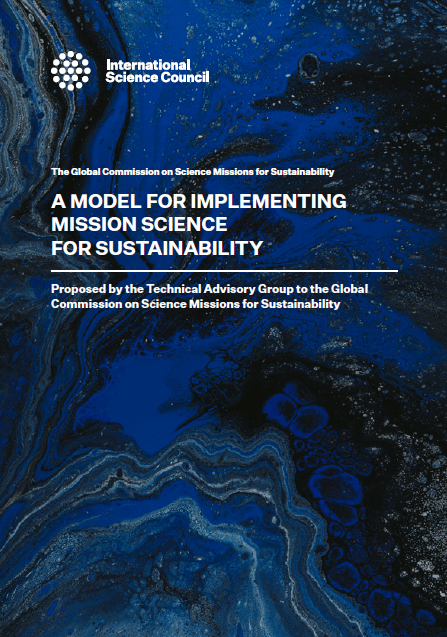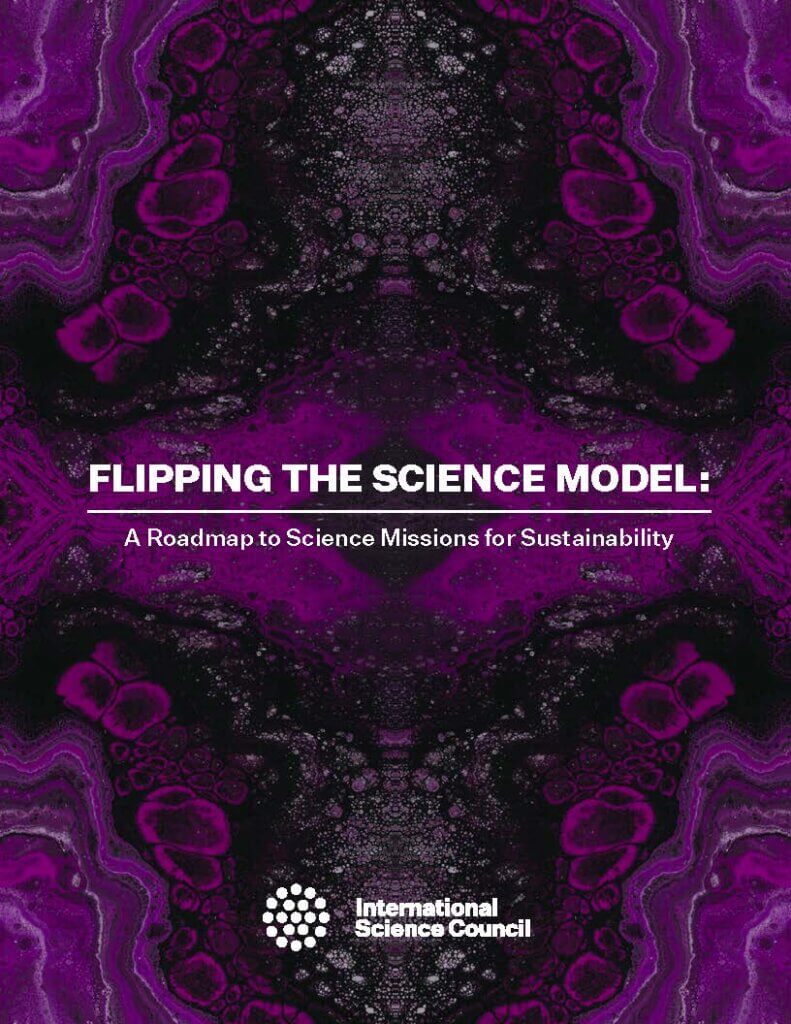Report, Strategy, planning and review

International scientific collaboration is at the heart of innovative solutions with the
potential for worldwide impact. But until now, sustainability science for has not
been given the opportunity and resources to help advance long-term sustainable
development at scale.
This report offers a model proposed by the Technical Advisory Group (TAG),
established to assist with the Commission’s work. The TAG is composed of twelve leading scholars and practitioners with broad experience in sustainability transformations and co-chaired by Pamela Matson (Co-Director of Stanford University Change Leadership for Sustainability Program) and Albert van Jaarsveld (Director-General of the International Institute for Applied Systems Analysis).

A Model for Implementing Mission Science for Sustainability
International Science Council, 2023. A Model for Implementing Mission Science for Sustainability, Paris, France, International Science Council.
DOI: 10.24948/2023.09.
The strategy proposed by TAG flips the more traditional science model, allowing the agenda and priorities to be determined by regional communities and stakeholder needs, and engaging science in service to society in which science communities collaboratively design, produce, integrate, implement and evaluate potential pathways to achieve sustainability outcomes. It also aims to break down silos and radically increase regional capacity to understand and address nexus issues.
To achieve the above-mentioned goals, the TAG proposes the establishment of a globally funded and empowered network of regional Sustainability Hubs . Each Hub will serve as a boundary-spanning platform for mobilization, coordination and alignment of diverse relevant actors and existing initiatives to address regionally identified complex nexus sustainability challenges.
Based on these recommendations, the Global Commission on Science Missions for Sustainability (convened in December 2021 by the ISC to rise to the challenges posed by existential risks to humanity and the planet) has developed a new approach to support and carry out mission science to significantly accelerate humanity’s progress on the path towards sustainability. This approach developed in the report, Flipping the Science Model: A Roadmap to Science Missions for Sustainability, to be introduced at the 2023 UN High-Level Political Forum (HLPF) at the UN Headquarters in New York.

Flipping the Science Model: A Roadmap to Science Missions for Sustainability
Based on the recommendations from the TAG, this report describes and advocates for mission science for sustainability as an urgently needed new form of science for the SDGs. It also serves as a call, inviting all stakeholders, both familiar and unconventional, to unite with the science community in this endeavour of collectively catalyzing science’s power to drive transformative action towards a more sustainable world for all.
International Science Council, 2023. Flipping the science model: a roadmap to science missions for sustainability, Paris, France, International Science Council. DOI: 10.24948/2023.08.
Image by Pawel Czerwinski on Unsplash.